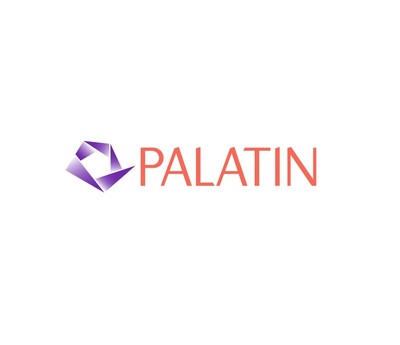- Co-administered bremelanotide + tirzepatide, bremelanotide alone, and tirzepatide alone arms showed improvement in appetite suppression, fullness, and satiety
- Bremelanotide matched or exceeded tirzepatide in appetite suppression
- Low-dose bremelanotide helped prevent appetite rebound after tirzepatide cessation
CRANBURY, N.J., April 17, 2025 /PRNewswire/ -- Palatin Technologies, Inc. (NYSE American: PTN), a biopharmaceutical company developing first-in-class medicines based on molecules that modulate the activity of the melanocortin receptor system, announced positive appetite suppression results from its BMT-801 Phase 2 obesity study. The study included a co-administered melanocortin 4 receptor (MC4R) agonist bremelanotide plus glucagon like peptide-1/gastric inhibitory polypeptide (GLP-1/GIP) tirzepatide arm, bremelanotide alone, and tirzepatide alone arms.
“One of the important research questions that the study was designed to answer was whether a low- dose of an MC4R agonist could support long-term weight loss maintenance. We’re excited with the results, which demonstrated that low-dose bremelanotide matched tirzepatide in appetite suppression, a compelling outcome,” said Carl Spana, Ph.D., President and CEO of Palatin. “Just as importantly, low-dose bremelanotide significantly reduced the appetite rebound typically observed after stopping GLP-1/GIP therapy—one of the major hurdles in sustained obesity management.”
Key Results – Appetite Suppression (Patient-Reported Outcomes)
Using a validated daily appetite questionnaire, the study showed that patients receiving co-administered bremelanotide + tirzepatide, tirzepatide alone, and bremelanotide alone, experienced significant improvements in appetite suppression, fullness, and satiety. Patients who transitioned to placebo after initial weight loss on tirzepatide showed no improvement for appetite suppression.
- Overall appetite suppression
- Bremelanotide + tirzepatide: 71% increase
- Tirzepatide only: 73% increase
- Bremelanotide only: 71% increase
- “How full do you feel (fullness)?”
- Bremelanotide + tirzepatide: 65% increase
- Tirzepatide only: 62% increase
- Bremelanotide only: 79% increase
- “How satisfied do you feel (satiety)?”
- Bremelanotide + tirzepatide: 56% increase
- Tirzepatide only: 56% increase
- Bremelanotide only: 68% increase
Consistent with known effects of GLP-1/GIP therapy, over 50% of lost weight was regained within two weeks of stopping treatment in both the tirzepatide and co-administration arms of the study. In contrast, patients who transitioned to low-dose bremelanotide after initial weight loss on tirzepatide maintained their weight without any significant regain, underscoring the potential of MC4R agonists as a valuable therapy for long-term weight maintenance.
Topline results from the BMT-801 Phase 2 trial, released last month, demonstrated statistically significant weight loss with bremelanotide co-administered with tirzepatide versus placebo over an 8-week treatment period. Further analysis of secondary and exploratory endpoints—including body composition and BMI—is ongoing.
Full study results will be submitted for presentation at an upcoming medical conference. Additional trial details are available at clinicaltrials.gov under identifier NCT06565611.
Pipeline Development
Palatin continues to advance its next-generation MC4R agonists, including long-acting peptides and oral small molecules, targeting broad obesity indications—including monotherapy and combination regimens with incretin-based therapies, as well as rare and genetic obesity disorders such as hypothalamic obesity. IND filings are anticipated by end of Q4 2025, with initial clinical data expected in the first half of 2026.About Melanocortin-4 Receptor Agonists Effect on Obesity
Genetic analysis has identified the melanocortin-4 receptor (MC4R) of the paraventricular nucleus of the hypothalamus as playing a central role in appetite regulation. Genetic mutations that inhibit signaling in the MC4R pathway lead to hyperphagia, decreased energy expenditure and early-onset obesity; such mutations have been identified as the cause of several rare genetic obesity disorders. Agouti-related peptide is an endogenous antagonist of the MC4R that works with neuropeptide Y to stimulate appetite, whereas MC4R agonists such as α- and β-melanocyte-stimulating hormone promote satiety. MC4R agonism represents an attractive target for potential obesity treatments.About Melanocortin Receptor Agonists
The melanocortin receptor (“MCR”) system has effects on inflammation, immune system responses, metabolism, food intake, and sexual function. There are five melanocortin receptors, MC1R through MC5R. Modulation of these receptors, through use of receptor-specific agonists, which activate receptor function, or receptor-specific antagonists, which block receptor function, can have medically significant pharmacological effects.About Palatin
Palatin is a biopharmaceutical company developing first-in-class medicines based on molecules that modulate the activity of the melanocortin receptor systems, with targeted, receptor-specific product candidates for the treatment of diseases with significant unmet medical need and commercial potential. Palatin’s strategy is to develop products and then form marketing collaborations to maximize their commercial potential. For additional information regarding Palatin, please visit Palatin’s website at www.Palatin.com and follow Palatin on Twitter at @PalatinTech.Forward-looking Statements
Statements in this press release that are not historical facts, including statements about future expectations of Palatin Technologies, Inc., such as statements about Palatin products in development, clinical trial results, potential actions by regulatory agencies, regulatory plans, development programs, proposed indications for product candidates, and market potential for product candidates are “forward-looking statements” within the meaning of Section 27A of the Securities Act of 1933, Section 21E of the Securities Exchange Act of 1934 and as that term is defined in the Private Securities Litigation Reform Act of 1995. Palatin intends that such forward-looking statements be subject to the safe harbors created thereby. Such forward-looking statements involve known and unknown risks, uncertainties and other factors that could cause Palatin’s actual results to be materially different from its historical results or from any results expressed or implied by such forward-looking statements. Palatin’s actual results may differ materially from those discussed in the forward-looking statements for reasons including, but not limited to, results of clinical trials, regulatory actions by the FDA and other regulatory and the need for regulatory approvals, Palatin’s ability to fund development of its technology and establish and successfully complete clinical trials, the length of time and cost required to complete clinical trials and submit applications for regulatory approvals, products developed by competing pharmaceutical, biopharmaceutical and biotechnology companies, commercial acceptance of Palatin’s products, and other factors discussed in Palatin’s periodic filings with the Securities and Exchange Commission. Palatin is not responsible for updating events that occur after the date of this press release.![]() View original content to download multimedia:https://www.prnewswire.com/news-releases/palatin-reports-positive-appetite-suppression-results-from-phase-2-obesity-study-of-mc4r-agonist-bremelanotide-and-tirzepatide-302431194.html
View original content to download multimedia:https://www.prnewswire.com/news-releases/palatin-reports-positive-appetite-suppression-results-from-phase-2-obesity-study-of-mc4r-agonist-bremelanotide-and-tirzepatide-302431194.html
SOURCE Palatin Technologies, Inc.






